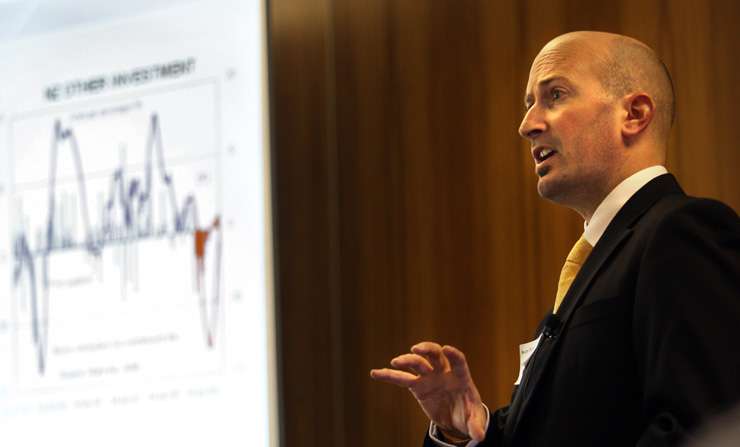Homeowners should brace for a headache on Thursday, with most economists predicting that the latest update of the consumers price index (CPI) will show the annual rate of inflation still above 7%.
The Reserve Bank of New Zealand is pushing up interest rates in a bid to bring inflation back to a target rate of between 1% and 3%, and the fear is that little change in the figures for the first three months of this year will put further pressure on mortgage-holders.
The annual rate of inflation in New Zealand has jumped from a post-Covid low of 1.4%, in Q4 2020, to a high of 7.3% in Q2 of 2022, with the rate in the last two quarters of 2022 sitting at 7.2%. Meanwhile, the Official Cash Rate has been hiked from a low of 0.25% to a 15-year high of 5.25% within the space of 18 months.
Start your property search
Most of the major banks’ economists have warned that a deeper recession than initially forecast is on the cards, with ASB’s chief economist, Nick Tuffley, predicting a tough year ahead for mortgage-holders.
“We expect rising living costs to add around $150 a week to household spending this year, and income growth is not likely to keep pace with this, despite another year of strong wage growth. It’s going to be a tough year, and home-borrowers will feel these impacts disproportionately.”
CoreLogic chief economist Kelvin Davidson says everyone is still anticipating inflation “to be pretty high this quarter, and similar to Q4 2022”, but the good news is that this has already been factored into interest rates by both the RBNZ and leading banks. “So for there to be ramifications for owners and buyers, we’d need to see something different – either another big spike in inflation, or a sharp decline,” he says.
Read more:
- Back from the brink: NZ house sales jump 42% after wash-out summer
- NZ’s economy isn’t ‘munted’, says economist as rate pain fears grow
- Must sell: Court forces house sale after messy divorce
Kiwibank’s chief economist, Jarrod Kerr, doesn’t expect inflation to fall until later this year, and expects more OCR rises to quell consumer demand. “Until (core) inflation firmly turns south and expectations are re-anchored, we can only expect more tightening from the RBNZ.”
The next OCR rise, expected in May, will either keep mortgage interest rates from falling, or push them higher, neither of which is really what homeowners want to hear.
The RBNZ expects the annual rate of inflation to rise to 7.3%, although that could be reassessed following Stats NZ figures that showed a 12.1% increase in food prices from March 2022 to March 2023, the highest annual jump since 1989.
The predictions from the major banks are as follows: Westpac - 6.9%; BNZ - 7.1%; Kiwibank - 7.1%; ANZ - 7.2%; and ASB - 7.2%.
ANZ’s economists have warned of the possibility of a “vicious cycle” of inflation.
“If workers demand inflation compensation, have heightened negotiating power due to the tight labour market, and expect inflation to be high, chances are firms will have to cough up. But because it isn’t related to any increase to labour productivity in this situation, firms will either become less profitable (which has natural limits), replace labour input with capital where possible (e.g. IT investment or machinery), or pass the higher labour cost on to the consumer, fuelling the wage-price spiral that is threatening to become embedded today. The more this happens, the higher the OCR will need to go in order to get the economy back into balance.”

ASB chief economist Nick Tuffley: “It’s going to be a tough year, and home-borrowers will feel these impacts disproportionately.” Photo / Supplied
The fact that the RBNZ made a surprise move by raising the OCR by 0.5 percentage points instead of 0.25 points earlier this month suggests that it is “firmly focussed” on bringing inflation down, say Westpac economists Kelly Eckhold and Michael Gordon.
The pair noted that the rebuild from Cyclone Gabrielle will create demand on the nation’s resources, which is expected to contribute to inflationary pressure.
Infometrics chief forecaster Gareth Kiernan is predicting that even if inflation statistics fall this year as most are predicting, the number is still likely to be 6.6% at the end of 2023 and only down to 3.8% by the end of 2024.
“Although the Reserve Bank can do little about these immediate pressures, they come at a time when pricing behaviour and inflation expectations have already been sustained at a high level for longer than expected,” says Kiernan.
“We now think it could be mid-2025 before inflation is back within the Reserve Bank’s target band of 1-3% pa.”


















































































